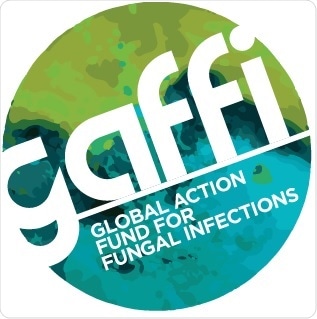International HIV experts have reported approximately 250,000 fungal meningitis cases annually, in the AIDS report, sub-Saharan Africa contributing 73% of cases.
Cryptococcus fungus causes fungal meningitis and usually affects individuals who are above 35 years old, affecting the tissues covering the brain and the spinal cord. Although a simple blood test and long developed life-saving medication are available, over 180,000 people die annually among those affected.
Of all the 1,100,000 AIDS-related deaths, 15% of these deaths are attributed to HIV-associated Cryptococcal Meningitis. And for the majority of patients that survive, experience no complications and upon treating the HIV infection, recover completely.
The study published in the prestigious journal Lancet Infectious Diseases was carried out by Radha Rajasingham and colleagues at the University of Minnesota, which also runs a main study program on fungal meningitis in Kampala in Uganda. The team estimated the current cases using 46 studies from around the world. A 10-minute diagnostic test costing about £5/$7 has generated a resurgence of interest in fungal meningitis. Blood tests can be used to diagnose patients early and treatments can be implemented. Fungal meningitis in AIDS is always fatal with no diagnosis or treatment.
Still too many HIV-infected people enter care late and Cryptococcal Meningitis is an unfortunate excellent metric of HIV treatment programme failure. In 2017, no person with HIV should develop fungal meningitis, yet in a failed cascade of HIV care, too often Cryptococcus is a final death sentence.”
Dr David Boulware, Senior author of the study, Associate Professor of Infectious Diseases at the University of Minnesota,
Amphotericin B and flucytosine— key antifungal drugs for Cryptococci meningitis – were added to the Essential Medicines List in 2013 by the World Health Organization, after persuasion from the Global Action Fund for fungal Infections (GAFFI) along with numerous other organizations. Yet global funding for these drugs has not be provided and so, flucytosine has not been available regularly in any of the African countries in 2017 and amphotericin B has not available in several countries.
While Cryptococcal Meningitis numbers have fallen slightly with better HIV care, over 20 million people are not receiving anti-HIV therapy and in the meantime, too many are dying of completely treatable infections, when they first attend hospital with AIDS. Even when anti-HIV therapy is routinely available, cases still occur regularly, as demonstrated in Botswana.”
Dr David Denning, President of GAFFI and Professor at the University of Manchester.
About the Global Action Fund for fungal Infections
 As a Geneva-based foundation, GAFFI is the major advocacy and fund raising body for a number of implementing partners, including governments and both national and international global health agencies. The vision of GAFFI is to reduce illness and death associated with fungal diseases worldwide.
As a Geneva-based foundation, GAFFI is the major advocacy and fund raising body for a number of implementing partners, including governments and both national and international global health agencies. The vision of GAFFI is to reduce illness and death associated with fungal diseases worldwide.
GAFFI is a charitable foundation (NGO) focused on reducing deaths and illness caused by fungal disease.
Fungal diseases are neglected worldwide by public health authorities. GAFFI efforts are directed at:
1. Identifying and publicising gaps in diagnostics and treatments for fungal diseases.
2. Consulting on how healthcare could be improved through facilitating training, encouraging companies to expand their markets and recommending improvements in infrastructure
3. Estimating the burden of serious fungal diseases, country by country. Over 68 country estimates are complete, and many of these are published
4. Developing, implementing and evaluating countrywide diagnostic programs - Guatemala (fungal infections in AIDS) the first
5. Influencing national and international agencies to ‘adopt’ fungal diseases alongside existing programs including TB, microbiology, AMR, NTDs and incorporation of key generic antifungals onto the WHO Essential Medicines List.
6. Focusing diagnostic improvements for GAFFI’s priority diseases.
GAFFI issued a 10-year Roadmap in 2015 calling upon governments, policy makers and international health agencies to:
- support the goal of reducing AIDS deaths to under 500,000 by 2020, with a determined focus on the commonest lethal fungal infections cryptococcal meningitis, Pneumocystis pneumonia, disseminated histoplasmosis and chronic pulmonary aspergillosis after tuberculosis
- ensure that 95% of people with serious fungal disease are diagnosed and 95% treated by 2025 (95-95)
Sources:
- http://www.thelancet.com/journals/laninf/article/PIIS1473-3099(17)30243-8/fulltext
- http://www.gaffi.org/roadmap/